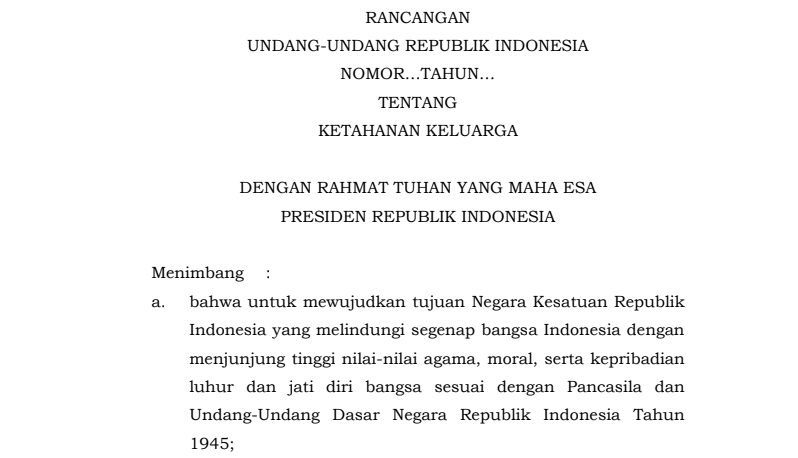The hugely controversial Family Resilience Bill, which has been widely criticized for its propositions to give authorities legal justification to invade the privacy of citizens (some in matters related to the sheets), is unlikely to pass into law, according to a lawmaker overseeing matters related to social welfare, religion, and the empowerment of women.
PDI-P’s Rieke Diah Pitaloka, a member of Commission VIII at the House of Parliament (DPR) and an outspoken advocate for women’s rights, said the bill is unlikely to pass due to resistance from the majority of lawmakers in her party — which forms the backbone of the government coalition in parliament.
“I don’t think it’s likely because most of us reject it,” Rieke said at a discussion event in Universitas Indonesia today, as quoted by Kompas.
“I am a DPR member and I’m a woman. I’m not a conservative and I reject [the bill].”
The bill was put forward by members of the conservative Islamic-based Prosperous Justice Party (PKS), National Mandate Party (PAN), Gerindra, and Golkar, but a lawmaker from the latter party has withdrawn support for the bill following widespread criticism against it.
Recently, the draft for the RUU Ketahanan Keluarga (Family Resilience Bill) leaked to the public. Ostensibly, it aims to protect Indonesian families from negative external forces (such as from globalization and technology) through the promotion of religious and traditional values.
Unsurprisingly for a bill with such a conservative bend, one of the ways it deems domestic bliss can be achieved is through the eradication of “sexual deviance,” which include homosexuality, S&M, and even by requiring children to sleep in their own rooms “to avoid incest.”
The bill is listed among those to be prioritized in DPR’s National Legislation Program (Prolegnas) for the 2020-2024 period. Its passage through parliament had been smooth thus far, but widespread public condemnation following its leak seems to have slowed it down.
Related
50 Shades of Nay: Indonesia looking to ban S&M with ‘family resilience’ bill




